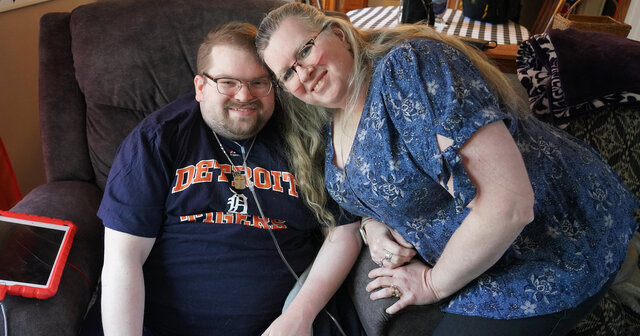

The Michigan Legislature is expected to pass two bills this week that would threaten home help workers and their families. Senate bills 790 and 791 would reinstate unionization of home healthcare workers — a policy that was overwhelmingly rejected by Michigan voters in 2012.
Laws like these are commonly referred to as “dues skim” laws because they empower unions to skim money from government stipends designed to support caregivers of sick and disabled patients — most of them family members providing care in their own homes.
If these bills pass, the Service Employees International Union Healthcare Michigan will be positioned to skim almost $16 million a year from some of Michigan’s most vulnerable citizens. This money would be drawn from the Medicaid-funded Home Help Program administered by the Michigan legislature. Most of the caregivers eligible to receive funds are people supporting their disabled adult children or elderly parents.
The Martin family in Galesburg is among those at risk from these bills. Their story is told in a new Mackinac Center profile.
Tammy Martin has been providing full-time care to her 24-year-old son, Nathan, since his infancy. Nathan Martin has mitochondrial disease, a progressive condition that puts all his organ systems at risk of dysfunction. He requires assistance with every aspect of his life, 24 hours a day.
“I am not only his mom but supply all of his care. We don’t have any outside assistance for nursing or anything else. I supply all his nursing care 24/7, which allows us to keep him at home and not in a hospital or in a care facility,” Martin said in the Mackinac Center interview.
Martin sacrificed a career to assume the role of full-time caregiver for her son. She is familiar with the dues skim and recognizes the threat it poses to her family.
“My mom worked as a home help aide to care for my aunt. She did not sign up to be part of the union and couldn’t get out of said union, and all they did was take her money, and she saw no real benefits,” Martin said. “It was a very happy day when that union stopped."
Under the original dues skim, workers could not opt out of union membership. Now, under the Unites States Supreme Court’s Janus v. AFSCME decision, public sector workers can refuse to pay a union. But opting out is a bureaucratic hurdle that adds yet another burden for families already under significant stress. As a result, many would end up paying a union simply because they can’t navigate the complexities of opting out or don’t realize they have the option.
“These bills create a fictitious employment relationship between the state and their providers,” said Patrick Wright, vice president for legal affairs at the Mackinac Center. "In reality, the care recipient hires and fires the provider. No one’s going to go into their own driveway and picket against a family member.”
The traditional function of a union, to negotiate on behalf of a body of employees, makes no sense in the context of Martin’s mother-son caregiving relationship.
“I don’t want to pay a union to represent me for things that I don’t need to be represented for,” Martin said. “No, I don’t think that they will improve the quality of life for my son—which is always our focus. And I don’t think it will improve the quality of life for our family either.”
Nathan Martin agreed.
“A union is not going to do anything to help us,” he said. "My dad’s a teacher, I’ve seen what happens when unions get involved. It’s not going to change my life for the better. It’s not going to give us more money, if anything it will end up costing us—which is something that we cannot afford.”
When Michigan’s previous dues skim was in place from 2005 through 2012, the union took $34 million dollars. After the legislature repealed the practice, the SEIU tried to put it in the state constitution with 2012’s Proposal 4. Michigan voters rejected that proposal by a vote of 56% to 44%.
If dues skim returns to Michigan, SEIU is eligible to take up to $13.75 million per year from the disabled and their caregivers.
Permission to reprint this blog post in whole or in part is hereby granted, provided that the author (or authors) and the Mackinac Center for Public Policy are properly cited.
Get insightful commentary and the most reliable research on Michigan issues sent straight to your inbox.


The Mackinac Center for Public Policy is a nonprofit research and educational institute that advances the principles of free markets and limited government. Through our research and education programs, we challenge government overreach and advocate for a free-market approach to public policy that frees people to realize their potential and dreams.
Please consider contributing to our work to advance a freer and more prosperous state.

Donate | About | Blog | Pressroom | Publications | Careers | Site Map | Email Signup | Contact